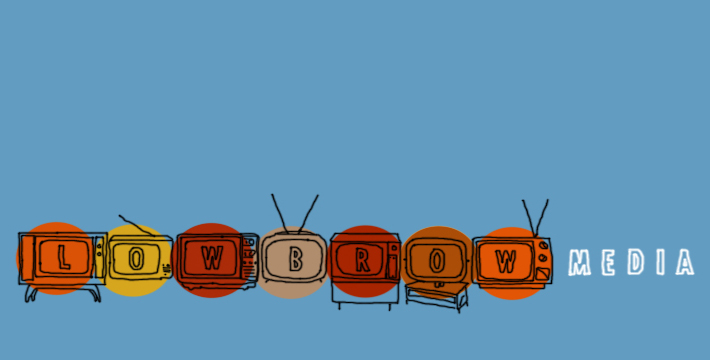
Consider my Complete Series boxed set pre-ordered.
I am a little surprised by the negative feedback this super-sized episode is receiving in the forums, because for my money ($0, granted) the Lost series finale was every bit as emotionally and intellectually satisfying as I could have hoped, perhaps even more so. It was also frequently thrilling on a visceral level, as with that insanely epic showdown between Jack and Locke on the cliff face. I watched the finale as part of a 9-person group, which was an extremely enjoyable and enriching viewing experience, and we all lost our shit as Jack advanced on Locke, leaping into the air to deliver a knockout punch. We also exalted with nerd glee over pretty much everything Lapidus (!) said, including, "In case you haven't noticed, I'm a pilot."
But action-adventure and laughs aside, what really makes this show special is the ideas that it provokes, the discussions it fosters and the communal experience it creates. Lost is without a doubt an anomaly on network television. It is a singularly weird, creator-driven show that completely denies passive viewing and yet somehow became hugely popular. As such, it has transformed even the most conventional of TV viewers into dedicated followers. The images of Jimmy Kimmel and his audience watching the final moments of the show, tears streaming down their rapt faces, were surprisingly poignant and indicative of this odd shared human experience. I've experienced little in my pop culture life quite like the minute-plus of complete, reverent silence among my previously jovial viewing group after the final image of Jack's closing eye. Nor have I experienced much like the hour-plus of spirited discussion that emerged when the dust settled. And in response to this season's critical battle between character and mythology, we definitely weren't discussing food drops and Hurley birds.
I, of course, don't mean to discount the fun of getting lost in Dharma history and contemplating time paradoxes, but these ancillary diversions were always secondary to, and deepened by Lost's emphasis on character. This is a lesson that ABC has failed to learn as it scrambles to replace Lost, evidenced by the trail of cardboard mystery shows it has left in its wake. What seems to be infuriating finale viewers the most - the lack of a concrete explanation of the Island's power - is one of the things I liked most about the finale, and ultimately the series. It is infinitely more intriguing to think that anyone who could even approach understanding the source of the Island's ancient power is long, long dead, and the various characters who have stumbled across it over the millennia (from Jacob to the Dharma Initiative to Jack) are acting on guesswork and pure faith. The Island is in many ways an existential Rorschach blot, and the methods by which the individual characters attempt to interpret its mysteries are far more valuable than any rote "answer" Lindelof and Cuse could have provided as to where "The Light" comes from and who built "The Cork."
The controversial Flash-Sideways storyline follows through on the show's promise of a character emphasis. Just as the Flashbacks at the start of the series fleshed out these characters and hinted at their importance to one another, and the Flashforwards of mid-series emphasized just how much their experience on the island impacted their lives, the Flash-Sideways was an unexpected, moving and thoroughly appropriate coda illustrating the "Live Together, Die Alone" motto so prevalent from the start. Some are arguing that the "purgatory" aspect of the Sideways universe renders the Island reality meaningless. I disagree. As Christian tells Jack, everything that happened to him on the Island is real, and everything matters. So I still don't know why Walt was special. And I don't know who built the statue. I'm happy to theorize. We see the universe of Lost through the characters' eyes, and therefore we can only understand it as they do. And right now, as a fan, in the moment, I have no complaints. The show wasn't perfect, though it very frequently came close. But it didn't have to be perfect, it just had to feel like Lost. And all that really matters to me is that poor John Locke, eternally hopeful and just-as-eternally beaten down by the world, finally found peace. And Jack Shepherd, so emotionally-repressed and frustrated by his unfulfilled need for empiricism, finally let go. I could go on forever. And Vincent... You know, speaking purely as a dog lover, this show gave me everything I could ever want.


1 comment:
What a wonderful post!!! I agree with every word that you wrote. People who are angry are wasting an opportunity to really view what the show was all about: love. Thanks for the great post!
Post a Comment